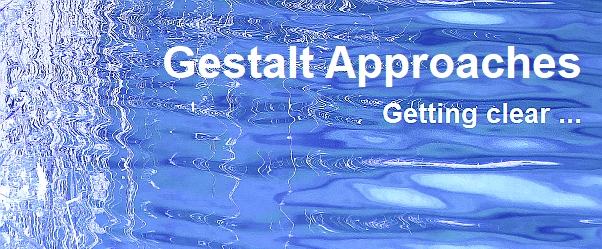Gestalt therapy is a humanistic therapy that aims to help clients heighten their awareness of themselves in the here-and-now and find creative ways of dealing with challenging life and work situations or personal issues. It is growth and relationship-oriented (dialogical), experiential and existential. It sees change as occurring through becoming who you really are. Clients are invited to experience themselves and experiment in a safe situation, expanding their own support while receiving support as required from the therapist. The approach is phenomenological, that is, it works with experience – perception, emotions and cognitions – in the here-and-now. The focus is on the client’s process as it unfolds, paying attention to the whole person as an integral part of their environment. Creative media can be used as appropriate.
Issues that Gestalt therapy can help with:
Depression …
… for example, you feel sad and/or tired and listless, the world seems grey, you have little energy and don’t seem to be able to enjoy things any more …
Anxiety …
… for example, you often feel anxious or fearful, unable to face everyday situations and/or certain people …. or you suffer from periodic attacks of extreme anxiety, often triggered by specific situations
Relationship problems/crises …
… for example, a conflict in a close relationship seems difficult to resolve or you no longer feel able to cope with longer-term differences …
… or a close relationship has broken up and you feel bereft and/or disoriented …
Migration problems / cultural adjustment …
… for example, you have relatively recently arrived in the country and feel strange, isolated, miss family and home, and sometimes don’t understand what’s expected of you …
Post-traumatic states …
… for example, you had a traumatic or highly stressful experience recently or some time ago; now you are having strange and uncomfortable, perhaps even scary reactions, e.g. flashbacks, nightmares, sleeplessness, difficulty concentrating; it may seem as if your whole view on life and the world has been shattered …
Burnout …
… for example, demands at work or in the home have reached such a level that you feel weary and unable to cope …; you no longer feel that you can enjoy your work or do it efficiently…
Prolonged grief …
… for example, you have lost a loved one and are finding it hard to cope with the feelings of sadness and loss … the grief seems never-ending …
Feeling “stuck” …
… for example, you seem to keep getting into similar difficult and stressful situations again and again and want to understand how this happens …
